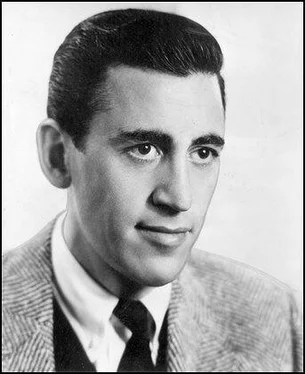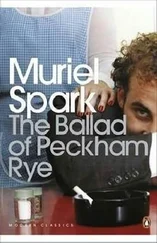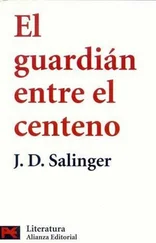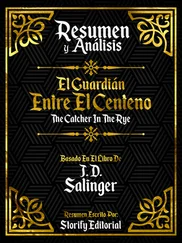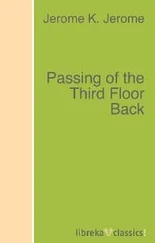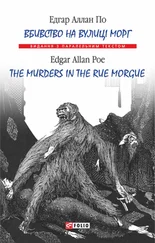I said I’d enjoyed talking to them a lot, too. I meant it, too. I’d have enjoyed it even more though, I think, if I hadn’t been sort of afraid, the whole time I was talking to them, that they’d all of a sudden try to find out if I was a Catholic. Catholics are always trying to find out if you’re a Catholic. It happens to me a lot, I know, partly because my last name is Irish, and most people of Irish descent are Catholics. As a matter of fact, my father was a Catholic once. He quit, though, when he married my mother. But Catholics are always trying to find out if you’re a Catholic even if they don’t know your last name. I knew this one Catholic boy, Louis Shaney, when I was at the Whooton School. He was the first boy I ever met there. He and I were sitting in the first two chairs outside the goddam infirmary, the day school opened, waiting for our physicals, and we sort of struck up this conversation about tennis. He was quite interested in tennis, and so was I. He told me he went to the Nationals at Forest Hills every summer, and I told him I did too, and then we talked about certain hot-shot tennis players for quite a while. He knew quite a lot about tennis, for a kid his age. He really did. Then, after a while, right in the middle of the goddam conversation, he asked me, “Did you happen to notice where the Catholic church is in town, by any chance?” The thing was, you could tell by the way he asked me that he was trying to find out if I was a Catholic. He really was. Not that he was prejudiced or anything, but he just wanted to know. He was enjoying the conversation about tennis and all, but you could tell he would’ve enjoyed it more if I was a Catholic and all. That kind of stuff drives me crazy. I’m not saying it ruined our conversation or anything—it didn’t—but it sure as hell didn’t do it any good. That’s why I was glad those two nuns didn’t ask me if I was a Catholic. It wouldn’t have spoiled the conversation if they had, but it would’ve been different, probably. I’m not saying I blame Catholics. I don’t. I’d be the same way, probably, if I was a Catholic. It’s just like those suitcases I was telling you about, in a way. All I’m saying is that it’s no good for a nice conversation. That’s all I’m saying.
When they got up to go, the two nuns, I did something very stupid and embarrassing. I was smoking a cigarette, and when I stood up to say good-by to them, by mistake I blew some smoke in their face. I didn’t mean to, but I did it. I apologized like a madman, and they were very polite and nice about it, but it was very embarrassing anyway.
After they left, I started getting sorry that I’d only given them ten bucks for their collection. But the thing was, I’d made that date to go to a matinee with old Sally Hayes, and I needed to keep some dough for the tickets and stuff. I was sorry anyway, though. Goddam money. It always ends up making you blue as hell.
After I had my breakfast, it was only around noon, and I wasn’t meeting old Sally till two o’clock, so I started taking this long walk. I couldn’t stop thinking about those two nuns. I kept thinking about that beat-up old straw basket they went around collecting money with when they weren’t teaching school. I kept trying to picture my mother or somebody, or my aunt, or Sally Hayes’s crazy mother, standing outside some department store and collecting dough for poor people in a beat-up old straw basket. It was hard to picture. Not so much my mother, but those other two. My aunt’s pretty charitable—she does a lot of Red Cross work and all—but she’s very well-dressed and all, and when she does anything charitable she’s always very well-dressed and has lipstick on and all that crap. I couldn’t picture her doing anything for charity if she had to wear black clothes and no lipstick while she was doing it. And old Sally Hayes’s mother. Jesus Christ. The only way she could go around with a basket collecting dough would be if everybody kissed her ass for her when they made a contribution. If they just dropped their dough in her basket, then walked away without saying anything to her, ignoring her and all, she’d quit in about an hour. She’d get bored. She’d hand in her basket and then go someplace swanky for lunch. That’s what I liked about those nuns. You could tell, for one thing, that they never went anywhere swanky for lunch. It made me so damn sad when I thought about it, their never going anywhere swanky for lunch or anything. I knew it wasn’t too important, but it made me sad anyway.
I started walking over toward Broadway, just for the hell of it, because I hadn’t been over there in years. Besides, I wanted to find a record store that was open on Sunday. There was this record I wanted to get for Phoebe, called “Little Shirley Beans.” It was a very hard record to get. It was about a little kid that wouldn’t go out of the house because two of her front teeth were out and she was ashamed to. I heard it at Pencey. A boy that lived on the next floor had it, and I tried to buy it off him because I knew it would knock old Phoebe out, but he wouldn’t sell it. It was a very old, terrific record that this colored girl singer, Estelle Fletcher, made about twenty years ago. She sings it very Dixieland and whorehouse, and it doesn’t sound at all mushy. If a white girl was singing it, she’d make it sound cute as hell, but old Estelle Fletcher knew what the hell she was doing, and it was one of the best records I ever heard. I figured I’d buy it in some store that was open on Sunday and then I’d take it up to the park with me. It was Sunday and Phoebe goes rollerskating in the park on Sundays quite frequently. I knew where she hung out mostly.
It wasn’t as cold as it was the day before, but the sun still wasn’t out, and it wasn’t too nice for walking. But there was one nice thing. This family that you could tell just came out of some church were walking right in front of me—a father, a mother, and a little kid about six years old. They looked sort of poor. The father had on one of those pearl-gray hats that poor guys wear a lot when they want to look sharp. He and his wife were just walking along, talking, not paying any attention to their kid. The kid was swell. He was walking in the street, instead of on the sidewalk, but right next to the curb. He was making out like he was walking a very straight line, the way kids do, and the whole time he kept singing and humming. I got up closer so I could hear what he was singing. He was singing that song, “If a body catch a body coming through the rye.” He had a pretty little voice, too. He was just singing for the hell of it, you could tell. The cars zoomed by, brakes screeched all over the place, his parents paid no attention to him, and he kept on walking next to the curb and singing “If a body catch a body coming through the rye.” It made me feel better. It made me feel not so depressed any more.
Broadway was mobbed and messy. It was Sunday, and only about twelve o’clock, but it was mobbed anyway. Everybody was on their way to the movies—the Paramount or the Astor or the Strand or the Capitol or one of those crazy places. Everybody was all dressed up, because it was Sunday, and that made it worse. But the worst part was that you could tell they all wanted to go to the movies. I couldn’t stand looking at them. I can understand somebody going to the movies because there’s nothing else to do, but when somebody really wants to go, and even walks fast so as to get there quicker, then it depresses hell out of me. Especially if I see millions of people standing in one of those long, terrible lines, all the way down the block, waiting with this terrific patience for seats and all. Boy, I couldn’t get off that goddam Broadway fast enough. I was lucky. The first record store I went into had a copy of “Little Shirley Beans.” They charged me five bucks for it, because it was so hard to get, but I didn’t care. Boy, it made me so happy all of a sudden. I could hardly wait to get to the park to see if old Phoebe was around so that I could give it to her.
Читать дальше
